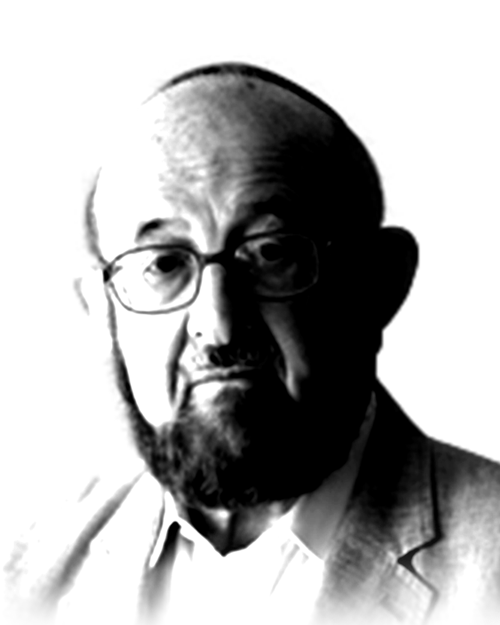What Halacha Means to Me
My relationship to halacha was undoubtedly shaped by the journey of my father.…

This month, we are exploring the topic of halacha. Halacha is many things to many people: a language, a process, a set of laws that are freeing and challenging to different groups of people. We will be thinking together with you about the journey of halacha in contemporary life, guided by several guests with whom…
My relationship to halacha was undoubtedly shaped by the journey of my father.…

In this episode of 18Forty Podcast, we had the privilege of speaking with Professor Haym Soloveitchik, University Professor of Jewish Studies at Yeshiva University.
In this episode of 18Forty Podcast, we had the privilege of speaking with Professor Haym Soloveitchik, University Professor of Jewish…
In this episode, we sit down with Dr. Moshe Koppel, professor of computer science at Bar-Ilan University to discuss some…
In this episode of the 18Forty Podcast, we talk to Dr. Tamara Morsel-Eisenberg – historian and Junior Fellow…
In this episode of the 18Forty Podcast, we talk to Rabbi Aryeh Lebowitz, the director of semicha at…
This foundational text seeks to understand the shifts in our understanding and practice of halacha that occurred in the world of observant Judaism over the last century. Soloveitchik, a lucid and compelling writer, sees in the break from the old world to the new a shift from a mimetic tradition to a textual tradition, as people moved from learning in and of the home to learning from texts. This is a must-read, and one that offers criticism, commentary, and fascinating insight into how change in a community is reflected by changes in our attitudes towards halacha.
Halacha serves as a bridge between our highest ideals and the reality of the world, through the Torah’s guidance. What happens when a dizzying pace of progress and change disrupt our understanding of our world? Personal freedom and autonomy are values with a contemporary cultural currency that is weightier than ever before, which complicates and challenges our relationship with normative halachic structures and systems. The Narrow Halakhic Bridge journeys through the firm and flexible aspects of halacha, studying the scholarship of the past to ultimately offer a vision for a halacha of the future. This deeply interesting read pairs well with David Silverberg’s Jewish Law As a Journey: Finding Meaning in Daily Jewish Practice, which seeks to provide a meaningful entry point for a more spiritual halachic observance. Silverberg urges us to seek the parallel spiritual and ethical import behind…
In this foundational text, Professor Christine Hayes explores how ancient thinkers wrestled with differing conceptualizations and conceptions of the divinity of divine law. Set in a world thousands of years past and yet stunningly relevant, Hayes’ explorations of Philo, Paul, Qumran, and the rabbis of Tanach and the Talmud are scholarly and timely. Law can be divine due to its perceived rationality or due to its revelatory origins, and Hayes makes a compelling argument for how the collision of these conceptions influenced much of the world we live in. Hayes’ research is not just an interesting commentary to the cultural world we live in, but a remarkable starting point for thinking about Jewish law.
Support Jewish explorations today by supporting 18Forty. Your partnership makes our work possible.
Donate today.

